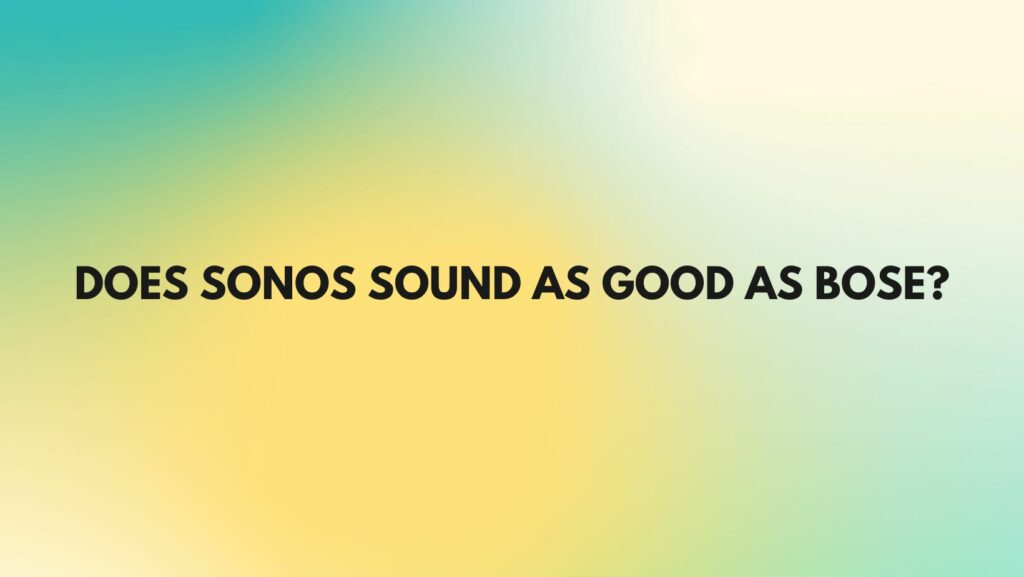In the realm of home audio, Sonos and Bose have carved out distinct niches, offering consumers a diverse range of speakers, soundbars, and audio solutions. Central to their appeal is the promise of superior sound quality, but the question remains: Does Sonos sound as good as Bose? In this article, we’ll embark on a comparative journey, exploring the nuances of sound reproduction, engineering prowess, and user experience to unravel the debate surrounding Sonos and Bose sound systems.
Understanding Sound Quality: Sonos vs. Bose Sound quality is a multifaceted aspect of audio reproduction, influenced by a myriad of factors including speaker design, acoustics, and signal processing algorithms. To assess the sonic prowess of Sonos and Bose, it’s essential to delve into the following key considerations:
- Engineering and Acoustics: Bose has long been revered for its commitment to engineering excellence and acoustic precision. Through innovations like waveguide technology and proprietary driver designs, Bose speakers strive to deliver balanced sound reproduction with minimal distortion across the frequency spectrum.
Sonos, meanwhile, approaches audio engineering with a focus on versatility and adaptability. By leveraging advanced tuning algorithms and meticulous speaker design, Sonos speakers aim to provide a cohesive listening experience characterized by clarity, depth, and spatial awareness.
- Speaker Design and Configuration: Both Sonos and Bose offer a diverse lineup of speakers tailored to different use cases and environments. Bose’s portfolio includes compact bookshelf speakers, wireless soundbars, and immersive home theater systems, each optimized to deliver optimal performance in specific scenarios.
Sonos, on the other hand, emphasizes the seamless integration of its speakers into multi-room audio setups and smart home ecosystems. With modular design and expandable configurations, Sonos speakers offer flexibility and scalability, allowing users to create personalized listening environments tailored to their preferences.
- User Experience and Integration: In the era of connected devices and smart home technology, user experience plays a pivotal role in shaping consumer preferences and purchase decisions. Both Sonos and Bose prioritize intuitive interfaces, seamless connectivity, and integration with popular streaming services and voice assistants.
Bose products offer a streamlined user experience through the Bose Music app and compatibility with voice-enabled smart speakers. By simplifying setup and customization, Bose aims to empower users to enjoy their favorite music and media with unparalleled convenience.
Similarly, Sonos speakers feature intuitive controls, multi-room audio synchronization, and compatibility with leading streaming platforms and voice assistants. With support for wireless connectivity and seamless integration with home automation systems, Sonos speakers redefine the boundaries of connected listening experiences.
Conclusion: In the ongoing debate over sound quality, Sonos and Bose emerge as formidable contenders, each offering a unique blend of engineering prowess, design aesthetics, and user experience. While Bose excels in acoustic precision and elegant design, Sonos distinguishes itself with its versatility, adaptability, and ecosystem integration.
Ultimately, the choice between Sonos and Bose hinges on individual preferences, lifestyle considerations, and budget constraints. Whether it’s the refined sound signature of Bose or the immersive listening experience of Sonos, both brands continue to push the boundaries of audio excellence, enriching lives and transforming the way we experience music, movies, and more.

